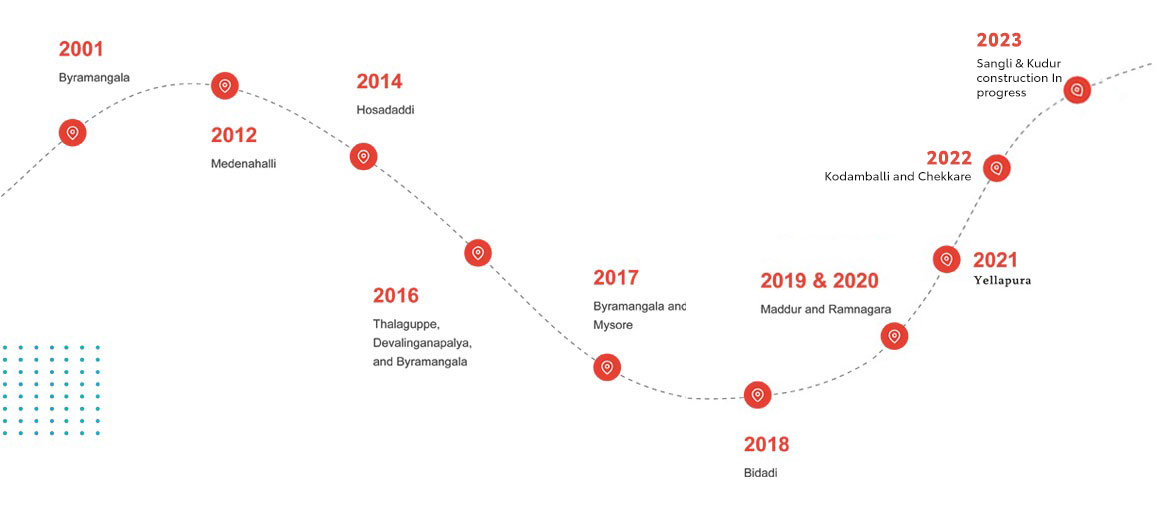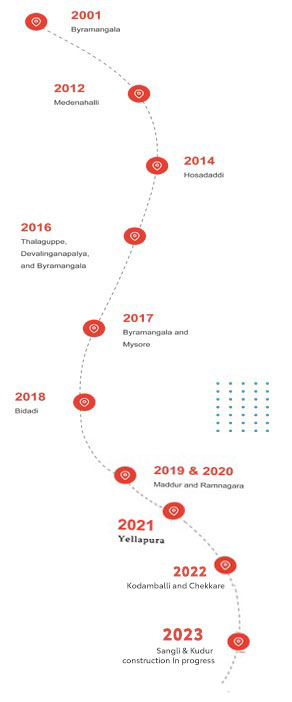We, in close collaboration with the local community, have
adopted a lake
(Abbanakuppe) spread across 3.4 acres, in the vicinity of
our
manufacturing plant.
The water table has risen with an improvement in the water
quality in the
region, which has further boosted the agriculture in the
vicinity and
shown a positive impact on the flora and fauna.
In FY 2020-21, Operation and Maintenance were carried out for
necessary
handing over to the local municipal body. Population from 6
villages are
currently benefiting from the Abbanakuppe lake.
In FY 23-24, Impact assessment was conducted. Findings are as below-
Improvement in water quality : More than 90% respondents felt that across various parameters such as foul smell, solid waste contaminants, weed and colour of lake
water has seen significant improvement.
Improvement in flora & fauna : 87% of the respondents stated that improvement has been seen in the number of birds spotted around the lake.
Reduction in pollution at lake and adjoining areas : 72% of respondents stated that garbage dumping in lake premises has reduced
Access to clean public space : 69% of the respondents felt that value added features such as grass lawns and play area has significantly improved aesthetics of the
lake
Feedback from Community:
71% of community members felt that the lake rejuvenation programme was able to address all community needs in a sufficient manner.
94% were satisfied with the execution plan followed for the lake rejuvenation project.
94% respondents suggested that TKM should undertake similar lake rejuvenation projects with some modifications.















